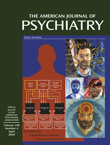Take the Time to Listen
To the Editor: Observing the metamorphosis of my chosen medical specialty from the 20th-century standpoint, I read with interest and pleasure Dr. Andreasen’s editorial (1) and the almost-supplemental introspection by Richard G. Druss, M.D. (2). Dr. Andreasen’s appeal is to all members of the association; Dr. Druss’s recollections will attract more attention from educators and administrators. Both spread the message: Take more time to listen.
The act of listening for psychiatrists is more than recording the sound of another’s voice. It is the most effective action one may take to initiate a bond with another. To me, it constitutes the essential element in opening the human communicative system. Perhaps predisposed but consciously influenced by my psychoanalytic experiences and impressed by interpersonal theory, I was guided in my professional life by the listening command. From its usage have come many rewards and gratifications from relations developed with my patients, students, and colleagues; they were my mentors.
Dr. Andreasen’s messages come at a time in psychiatric experience quite different from that of my generation when we coped with the socially distressing issues of the latter half of the last century. Trying as those times were, I perceive the American medical environment of today as more demanding and less personally satisfying than that of the last century. The physician-psychiatrist then was largely in control of his or her professional environment and was able to take the time to listen to patients. Listening time involves much more than turning on the priorities of the auditory system. Then is when one observes as well the nonverbal, reflects, and interprets.
Dr. Druss illustrated by his recollections the long-time influence of a mentor giving unexpected personal time to a student. I doubt that all aspirant writers would take easily to receipt of their editorial gift splashed with red ink. My father also gave me a “red-ink special” shortly after I requested his editorial assistance with an early paper I was preparing. To my chagrin, it was returned to me covered with innumerable brilliant red scratch-outs, inserts, and suggestions. But it also left me angry and with bruised self-esteem. On the positive side, it alerted me to give more personal time to editing my writing efforts before submitting any document for publication.
Later a well-known colleague told me of his response to a “red-ink” editorial exposure requested by him—he never wrote again. Today if I am requested to edit a paper by a family member, student, or fellow worker, I do so in a much more informal manner. Fortunately, Dr. Druss is made of sterner stuff than my inhibited colleague. He has a droll sense of humor and laughs or smiles at the peccadilloes of himself and others. He is a delight to his faculty colleagues, including myself. His writing has never ceased.
Seldom do teachers in this country receive public expressions of appreciation, as was given to me in this Introspection. Badly needed in this country is a vastly improved reward system for teachers. I am grateful to Drs. Andreasen and Druss for their writings. They have aroused in me many gratifying memories of my days of teaching.
Reprints are not available; however, Letters to the Editor can be downloaded at http://ajp.psychiatryonline.org.
1. Andreasen NC: Diversity in psychiatry: or, why did we become psychiatrists? Am J Psychiatry 2001; 158:673-675Link, Google Scholar
2. Druss RG: Dr Lawrence C Kolb: one student’s recollection. Am J Psychiatry 2001; 158:692-693Link, Google Scholar



